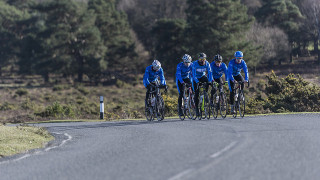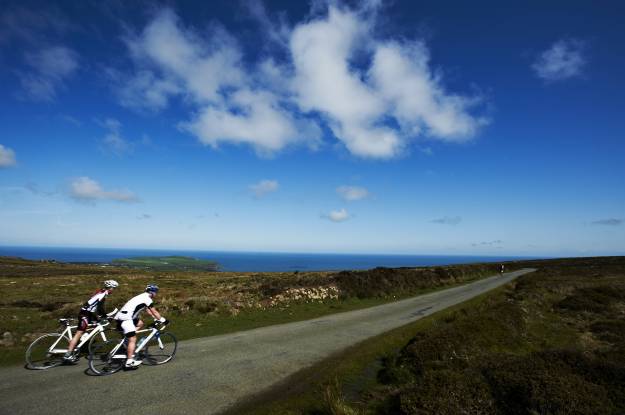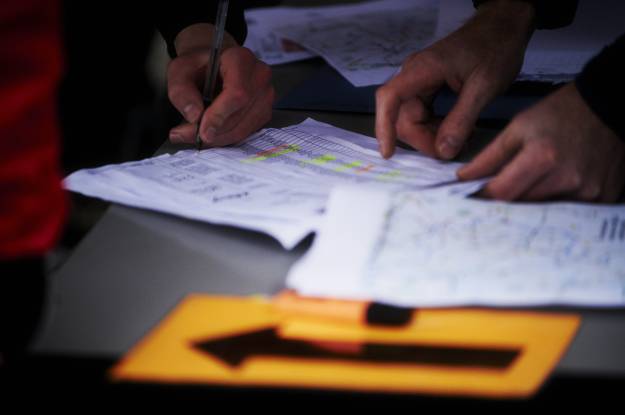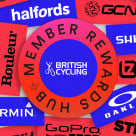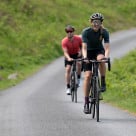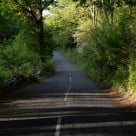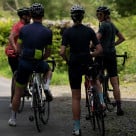Gary Coltman’s role as Head of Performance for Scottish Cycling was a new role set up in 2013 to develop Scottish athletes for the future; Andy Whitehouse managed to catch up with Gary to find out what it has been like since then.
Working at Manchester under Sir Dave Brailsford for some 8 years as Performance manager of the Olympic Talent Programme, it must have been a challenge to move North?
“It was a pretty big decision to leave British Cycling, but following a review of the sport in Scotland, Scottish Cycling made the decision to appoint a Head of Performance and that grabbed my interest. I had been at BC for over 10 years so it was a good time for a new challenge.
You started the job just over a year before a home games – this must have been a challenge?
"We went into 2014 knowing we had to prepare the best we could but my role was much more about post 2014. We knew it would take a full 4 year cycle into 2018 to start to see any real success. It was always going to be about laying the foundations and the work started after the Glasgow Commonwealth games. We were successful in Glasgow, winning five medals so that put us in a good place to start the hard work!”
Did you have to build a team from scratch after your appointment?
“There were coaches in place but there was no one in place to deal with the strategy or the planning for talent pathways which was going to be important for the future. We are part of the British Cycling system and from a talent point of view we have objectives that are clearly defined – and they are about developing talent to gain selection on to GB programmes. There is a heavy weighting towards Olympic success because ultimately Scotland want Olympic medals, as well as Commonwealth Games success obviously”
And the sport’s funding is centred around Olympic Performances?
“The money for performance sport in Scotland comes from lottery funding so in line with UK objectives there is a large focus on Olympic success. Other international success (World’s etc) along with the Commonwealth Games is also very important to Scotland. In order to achieve at any of these levels, the bike riders need to be World Class – so that is what we are focused on; as we all know, the Commonwealth countries are among the very best in the World now, so Commonwealth success will only happen if we have World Class riders.
Team GB has proved beyond any doubt we have been successful on the track and road, was part of your brief to concentrate on track and road for the future?
“It was to develop track, MTB and road riders. Track is heavily focused and for us it has to be the route in, however, we want world class road riders to come out the other end of it. Riders like Geraint Thomas, Ian Stannard and Pete Kennaugh - those type of riders who have been successful on the track before going on to be World Tour riders.
In Scotland, historically we have had very strong sprinters, the likes of Sir Chris Hoy, Craig Maclean and going back further, Eddie Alexander - and we aim to continue to develop sprinters who can be world class in the future. But we also have a very strong history on the road, and that remains important. We are aware that road racing is still at the centre of many young riders ambitions, and that is great; we want to help them achieve road success at the highest level in the long term, and we have made the decision that the best opportunity to achieve this is through the GB programmes – following in the footsteps of Thomas, Cav etc.
In addition to the other disciplines, MTB is a fantastic opportunity for us as well – we have a good group of young riders coming through and they are all looking up to Grant Ferguson who is a great role model for them, and still a young talent with a bright future. We talk about the need for world class facilities – well we have those in abundance in Scotland for MTB so it’s an area of focus for us. We also now have a National standard BMX track and work has started on developing that pathway – the numbers are rapidly increasing and we want a piece of that action!”
Will the training be track focused this year?
“For the endurance riders the activity over the summer months won’t be so much track focused, but the goals they are working towards remain track focused. During the summer months we will do a lot of road work – and a team will compete in a number of road events as part of this programme. We are taking a group out to Belgium in the summer which will give the riders a lot of experience and build their physical strength which will be important to achieve on the track later in the year. Four of the lads here this week rode a 4-15 as Juniors in the TP last year, which was pretty quick considering they had had very little training together. They now need to gain more strength in depth and race experience both on the road and track”.
Being based in the velodrome must help with the training?
“We actually recognised, as coaches, we need to spend more time on the road. People see us in the velodrome running our sessions twice a week but there is a little bit of confusion between a track based programme and a track programme. A track programme in my mind is a programme where you aim to produce track riders – full stop. But a track based programme is a programme where you use the track to develop riders in all aspects; there is no doubt that the track gives a young rider so much – both on and off the bike and provides an environment that enables the coaches to work very closely with the riders – and when you consider the weather in Scotland, there are many positives”.
Does that mean if riders aren’t World standard there is no interest?
“It’s more about the riders ambition; if a rider gets to a good National level but doesn’t make the next step onto GB we would hope that rider will be good enough to be a solid competitor in the likes of the Premier calendars, and Tour Series for example, and go on to have a career on a domestic Pro team. If a rider has a high level of ambition and their goals align with our objectives, we are keen to work with them; of course they will need to demonstrate a level of talent, but that is not the be all and end all. The aim is Olympic medals and World Tour riders in the long term, but I believe if a rider works with us and they don’t make that level, they will be in a good place to have a great domestic career”.
I would imagine there is a smaller budget available to you than British Cycling, does that make you more selective when picking new riders for the programme?
“Yes and no really; we do want more riders, but that takes more resources so it’s a challenge, but certainly at the lower end of the pathway, we would like to see the numbers increase as that will push the level up. Based on population, we will always have a smaller number of riders to choose from anyway, and bear in mind some riders don’t want to sign up, they are more than happy to ride for a domestic team and follow a different pathway which is fine. Riders can get to World Tour doing their own route but looking at the stats, getting to GB gives you a much better chance to achieving that goal. Just look at the U-23 Academy and the riders that have gone through that and then gone on to the big teams on the road.”
Tell me about i-Develop and the idea behind it.
“We have a small number of riders that we are focused on at the moment to get on that pathway to GB, but just under that we have something called i-Develop which gives opportunities for riders to work with us for a while with the aim of getting selected onto our Performance Development Programme. The input is limited as we only have three coaches, but the programme has been successful in finding and developing new talent who otherwise may not have had the opportunity.
So we give them that opportunity to come along to the velodrome on a Sunday for a full day of track, road and educational sessions. They can send their training diaries in to the coaches who will give feedback. We have ‘found’ riders we would never have known about if it wasn’t for i-Develop – Angus Claxton from the North West of Scotland developed through these session last winter having never been on the track before - and ended up with a bronze medal in the IP at the Junior Track Champs, and riding 4.15 as part of the our junior Team pursuit team.
Do riders have to apply or do you scout them?
“Both. Riders can apply but we also work closely with Scottish clubs who flag riders to us through our Regional Development Officers. We have a rider with us on camp who is a first year junior who started riding 18 months ago and he is progressing well towards the benchmarks laid down by the GB juniors so it is important to find these riders and get them onto the system as soon as we can.”
It must be difficult to ask people to leave the system.
“Yes, it’s quite painful, to invite riders along then having to de-select them – it’s not something we want to do! But with iDevelop there is no initial commitment in terms of official selection - riders come in then it’s up to them to show us their ability and commitment; we run it mainly through the winter so there is an end date, but advice is still available if a rider wants it. We called it I Develop to communicate it’s about the riders developing themselves through the opportunities we can provide. They have to lead their own programme - we are not there to do it all for them”.
Would you agree that cycling in Scotland is more accessible now?
“I think so. Post Commonwealth games we sat down and said how do we get more riders into the system and we created i-Develop which proved very popular. In the first year we had around half of the riders drop out, but to be honest that’s fine because they realised just how hard it is to succeed or perhaps it wasn’t the pathway for them and they made the decision to leave. It’s about giving people the opportunity and iDevelop has done that, not only for existing cyclists, but it’s provides a great tool for talent transfer too.”

